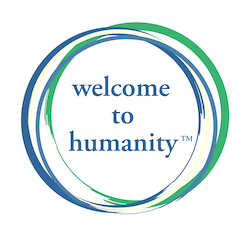Treatment Protocols of a Non-Medicating Psychiatrist
“Welcome to humanity, embrace you true self”
Today I worked most of the day on my Welcome To Humanity website. I also got my Acuity schedule together. Spoke with my core team members. Edited and finalized a journal article that was accepted for publication. And put some finishing touches on an online course that I have poured several hundred hours of hard work into. If all goes as planned, it should now be ready to launch sometime this month.
This stance has led to some significant dilemmas and complications. For nearly thirty years I was getting paid lots of money to prescribe medications as a psychiatrist. Although for the last fifteen or so years, I was fraught with internal conflict over prescribing medications. Nevertheless, I did it anyhow. I wrote the prescriptions that I was expected to write. And I rationalized my actions with excuses and reasons.
The patient is going to get the medicine whether I give it or not. Prescribing meds is not egregious enough for me to leave my job over it.
A person has to make a living, after all. And besides, doesn’t everyone have some aspect of their job they find distasteful?
The patient or caregiver states that the patient is doing better. (Even if they are not objectively any better.) Who am I to tip the applecart?
Geriatric patients in nursing homes, prisoners, and children residing in group homes and institutions are simply more difficult to care for. The medication needs and treatment plans have been established over time and are typically non-alterable anyway. I’m just following best practices!
Bucking “the way things are done” risks upsetting someone in the system and raises suspicion. I don’t want to cause any major disruption for a patient who has been seen for years by other clinicians and kept on the same or same advancing regimen.
Stopping medication is such a strange and unexpected way of managing worsening symptoms. Ironically, I might find myself in trouble(!) with the “officials” for even suggesting it.
If I remove the meds, and the patient does something harmful at some point in the future, I will surely be blamed for this behavior—as if it was a direct result of discontinuation of the medicine. I might face a lawsuit or public ridicule. And die alone and sad.
Since I stopped prescribing medications earlier this year, an important phenomenon has come to light.
There are no available job opportunities for a non-medicating psychiatrist.
And in fact, prescribing medication is the key feature that separates psychiatry from other ancillary mental health subspecialties. When psychologists and social workers refer patients to a psychiatrist, the doctor assumes that they have used all of the communication tactics available. Therefore, the psychiatric profession solely manages prescription-medication treatment protocols. Without the act of writing prescriptions, the entire relevancy of contemporary psychiatry would be challenged.
The specialty would face extinction.
This reinforces that I cannot, in good conscience, go back to the profession that has been my life’s work and meal ticket for the last three decades. It leaves me with the only option that I have, which is to stay a relevant psychiatric healer. And to do so from an entrepreneurial framework, creating for myself a space where up until now, there was not a job to be had.
And yes, the treatment I will be using is Evidence Based, drawing from the last several thousand years of human culture. What I have now learned, and frankly have known the whole time, is that what the distressed and suffering patient is really seeking is to be heard and acknowledged. For this is what we all long for. With this in place, symptoms seem to magically and reliably abate, and often disappear. Without it, uncomfortable psychiatric symptoms reliably emerge or stay present.
The tools to be heard and understood can be broken down into two main categories:
Communication & Connection
Communication through the spoken word and connection with another. This communication is not limited to words and includes what is said, not said, conveyed and felt. It is a function of authenticity and love.
Creativity & Self-Expression
Creating things that weren’t there when you started. Utilizing my Creative 8 which includes art, music, dancing and other forms of self-expression.
Communication, Connection, Creativity, and Self-Expression are key tools— and perhaps the only truly necessary tools—that need to be present for any healing art to be effective and useful.
Once we really get, down to the bones, the human necessity of being heard and expressing oneself freely, the option of writing off a patient with a perceived long-standing mental condition/diagnosis becomes no longer viable. Prescribing or requiring medication (toxic chemicals!) for attenuating symptoms starts to seem like cutting off an arm to cure an itchy elbow.
Maybe the world is approaching readiness to consider this level of paradigmatic challenge and shift. I hope so, because I sure am.
I declare:
“I refuse to medicate patients ever again, on the grounds that hurting someone in order to stop their discomfort is not compassionate nor the correct treatment. ”
The ends don’t justify the means. Nor do they even achieve the desired outcome.
In fact, deep, profound and curative interventions are available and ever-present between caring people. These interventions—which may not have been possible or even fathomable before becoming aware of their power— can then promote transformation and lasting change.
My prescribed treatment protocols now include Communication, Connection, Creativity, and Self-Expression, in their many forms.
Take a lifetime of that, and call me in the morning.
Welcome to Humanity.
Dr. Fred
Founder of
• Welcome to Humanity
• Mastering Telepsychiatry
• Global Madness Film
Want to learn more about the Creative 8 methodology that hundreds of my patients have used to overcome their “diagnosis” and live more full, creative, and self-expressed lives?
It’s completely free and you can implement it today— in less time than it takes your Keurig to brew a cup of coffee. ;)





